Find Help
More Items From Ergsy search
-
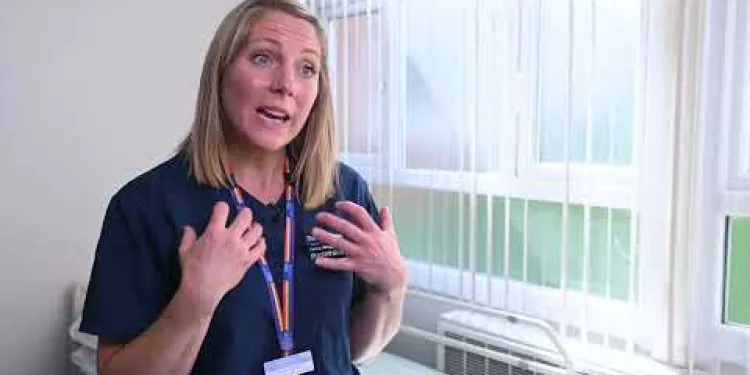
Breathlessness after COVID-19 - helpful techniques
Relevance: 100%
-
Can air physiotherapy help with COVID-19 recovery?
Relevance: 64%
-
What is a COVID-19 variant?
Relevance: 62%
-
How are COVID-19 variants detected?
Relevance: 61%
-
Can the COVID jab give me COVID-19?
Relevance: 60%
-
What is the Covid-19 Stratus variant?
Relevance: 60%
-
Does the flu vaccine protect against COVID-19?
Relevance: 59%
-
How do COVID-19 variants arise?
Relevance: 59%
-

Will getting the flu jab protect me against COVID-19?
Relevance: 58%
-
Do new variants affect COVID-19 testing?
Relevance: 58%
-
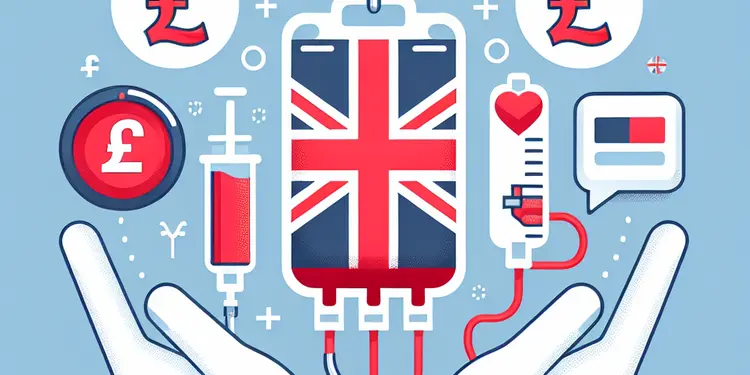
Can COVID-19 be transmitted through blood transfusions?
Relevance: 58%
-

What sources should I consult for information on Covid-19?
Relevance: 58%
-
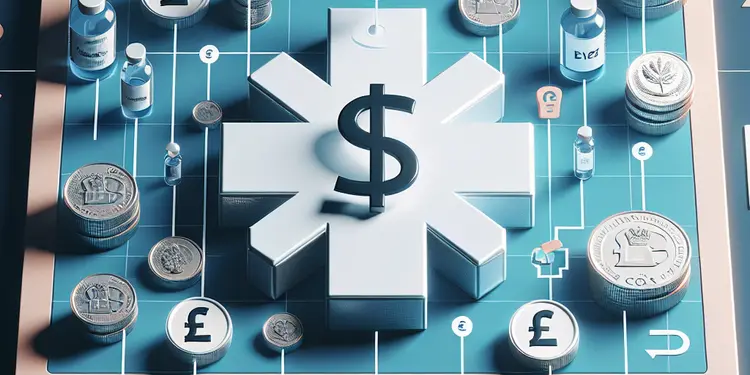
Should I get vaccinated if I already had COVID-19?
Relevance: 57%
-
Does travel insurance cover COVID-19 related issues?
Relevance: 56%
-
What are the COVID-19 travel restrictions for traveling to Spain?
Relevance: 56%
-
Where can I learn about real Covid-19 variants?
Relevance: 56%
-

How do scientists name new Covid-19 variants?
Relevance: 54%
-

How can I protect myself from new COVID-19 variants?
Relevance: 53%
-
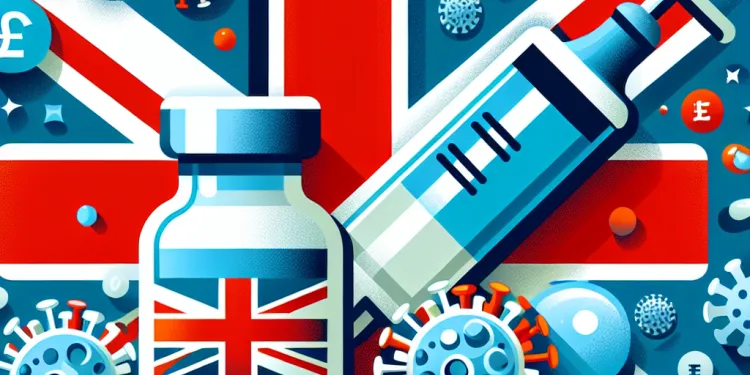
Do vaccines work against new COVID-19 variants?
Relevance: 53%
-
What is the process to identify a new Covid-19 variant?
Relevance: 53%
-
How often do new COVID-19 variants emerge?
Relevance: 53%
-
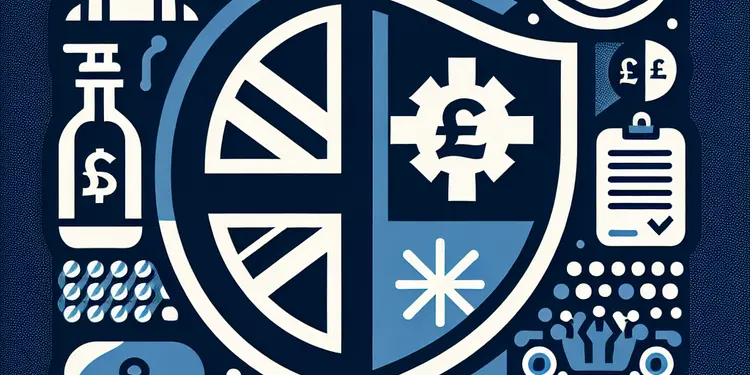
How can I protect myself from Covid-19 variants?
Relevance: 52%
-

Are new COVID-19 variants more dangerous?
Relevance: 50%
-

Long COVID - Managing Breathlessness
Relevance: 48%
-
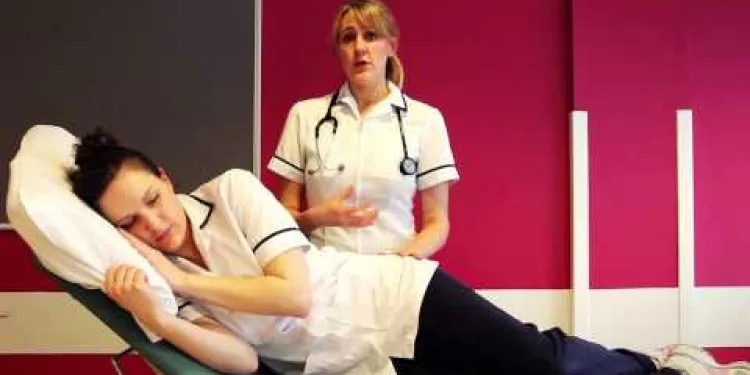
Positioning for Breathless Patient
Relevance: 38%
-
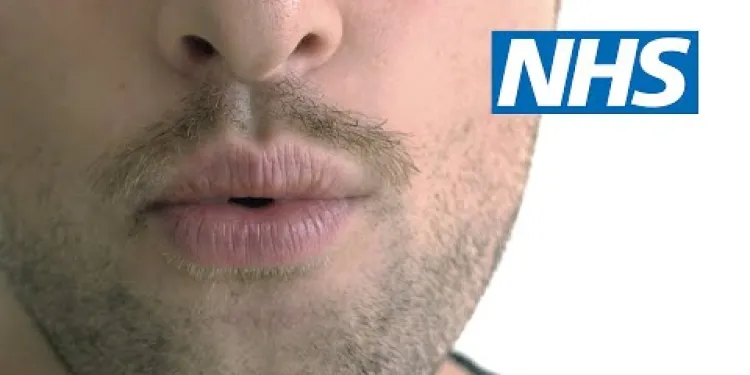
Tips for breathlessness | NHS
Relevance: 37%
-
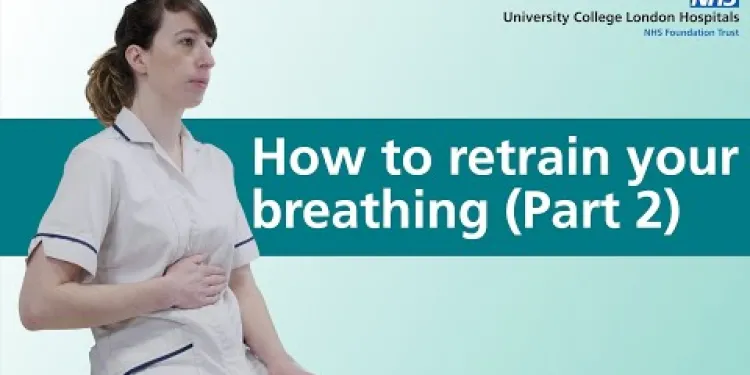
How to retrain your breathing | Part 2 | Asthma, long covid or breathlessness
Relevance: 32%
-
Can I get the COVID jab if I am pregnant or breastfeeding?
Relevance: 31%
-

Does the COVID jab affect fertility?
Relevance: 31%
-
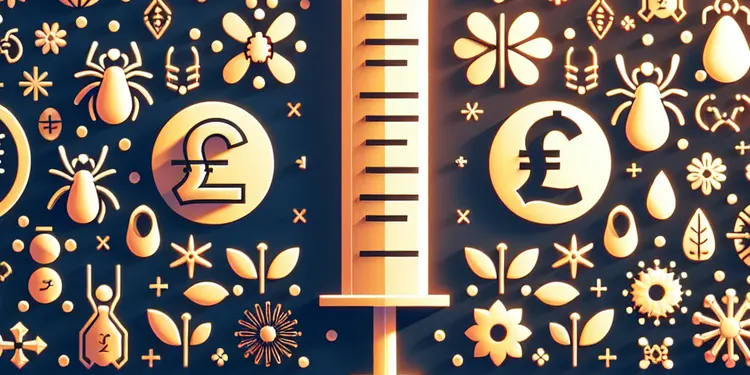
Can I get the COVID jab if I have allergies?
Relevance: 30%
-
What are some well-known COVID-19 variants?
Relevance: 29%
-
Are the symptoms different with new COVID-19 variants?
Relevance: 29%
-
How do COVID jabs work?
Relevance: 29%
-
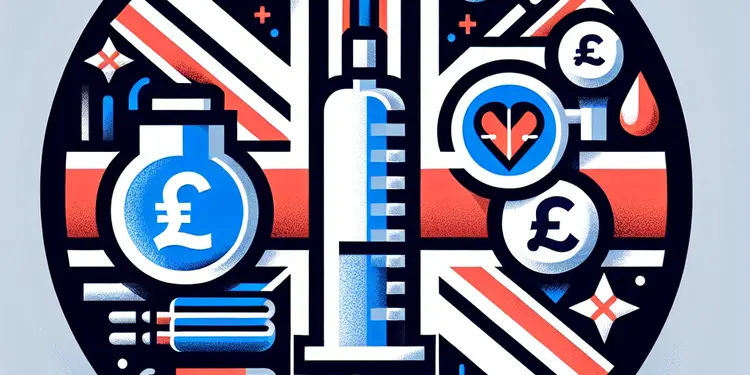
Are there any long-term side effects of the COVID jab?
Relevance: 29%
-
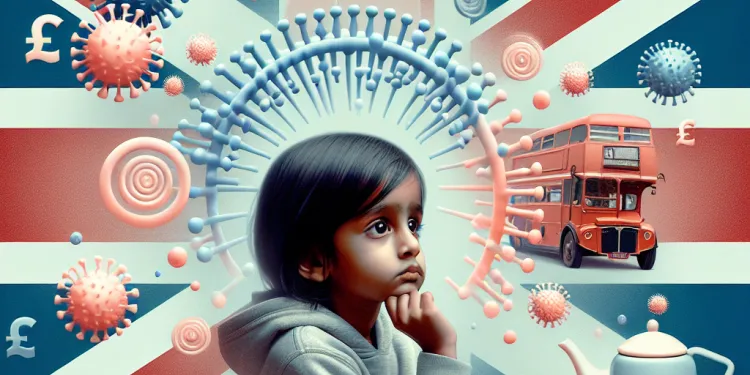
Are children more affected by new variants of COVID?
Relevance: 29%
-
What is being done globally to track COVID-19 variants?
Relevance: 28%
-

What are the Nimbus and Stratus variants of Covid?
Relevance: 27%
-
Should I get a COVID jab?
Relevance: 27%
-
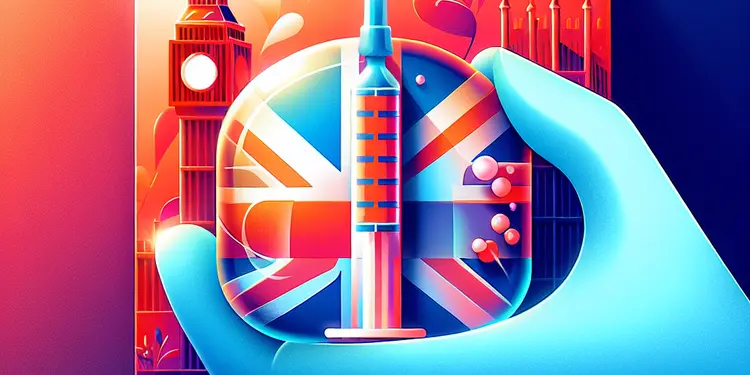
Are COVID jabs safe?
Relevance: 26%
-
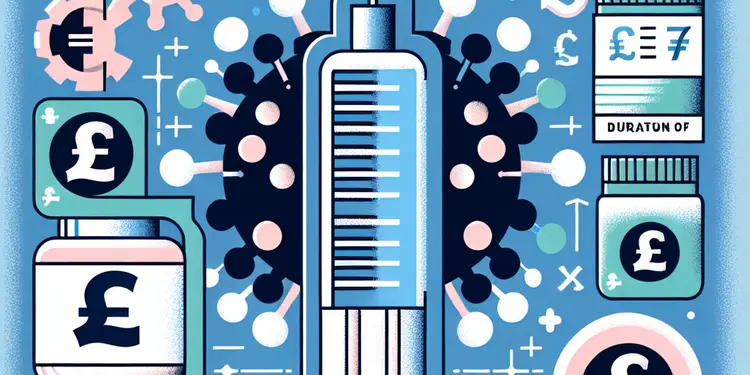
How long does immunity last after getting the COVID jab?
Relevance: 26%
Breathlessness after COVID-19 - Helpful Techniques
Many individuals in the United Kingdom who have recovered from COVID-19 continue to experience breathlessness. This can significantly impact daily life and overall well-being. Fortunately, there are several techniques that can help manage and alleviate this condition.
Breathing Exercises
Breathing exercises can be crucial for improving lung function and reducing breathlessness. One effective method is diaphragmatic breathing, also known as belly breathing. To do this exercise, sit or lie down in a comfortable position. Place one hand on your chest and the other on your stomach. Take a deep breath in through your nose, allowing your stomach to rise while keeping your chest still. Exhale slowly through pursed lips. Repeat this exercise several times per day.
Pacing and Energy Conservation
It's important to balance activity and rest. Pacing involves spreading out activities over the day to avoid overexertion. Plan your day with scheduled rest breaks and prioritize tasks. Use energy-saving techniques such as sitting while showering, preparing meals while seated, and using lightweight kitchen utensils to conserve energy. Small changes in daily habits can collectively improve your ability to manage breathlessness.
Physical Activity
Engaging in regular, gentle physical activity can enhance overall lung function and stamina. Activities such as walking, cycling, or swimming are beneficial. Start slowly and gradually increase the intensity and duration of your exercise as your fitness improves. Always consult with a healthcare professional before beginning a new exercise routine, especially post-COVID.
Healthy Lifestyle Choices
A balanced diet and staying hydrated play a crucial role in recovery. Eat nutrient-dense foods, including fruits, vegetables, lean proteins, and whole grains. Avoid alcohol and smoking, as they can exacerbate breathlessness. Additionally, ensure you get enough sleep, as proper rest is vital for recovery.
Seeking Professional Help
If breathlessness persists, consult a healthcare professional. Physiotherapists and respiratory therapists can provide personalised rehabilitation programmes tailored to your specific needs. Pulmonary rehabilitation may include monitored exercises, nutritional advice, and psychological support.
In conclusion, managing breathlessness after COVID-19 involves a combination of breathing exercises, pacing, physical activity, healthy lifestyle choices, and professional guidance. By integrating these techniques into your daily routine, you can improve respiratory function and enhance your quality of life.
Breathlessness after COVID-19 - Helpful Techniques
In the UK, many people who had COVID-19 still find it hard to breathe. This can make everyday life difficult. But there are ways to help you feel better.
Breathing Exercises
Breathing exercises can help your lungs work better. One type is belly breathing. To do this, sit or lie down comfortably. Put one hand on your chest and the other on your stomach. Breathe in deeply through your nose. Your stomach should go up and your chest stay still. Breathe out slowly through your mouth. Do this exercise several times a day.
Pacing and Energy Conservation
It's good to balance doing things and resting. Spread your activities throughout the day. Plan breaks and do important tasks first. Save energy by sitting while showering or cooking. These small changes can help you handle breathlessness better.
Physical Activity
Regular, gentle exercise can help your lungs and make you stronger. Try walking, cycling, or swimming. Start slow and do a little more each time. Talk to a doctor before starting new exercises, especially after COVID.
Healthy Lifestyle Choices
Eating well and drinking enough water helps you get better. Eat fruits, vegetables, lean meats, and whole grains. Avoid alcohol and smoking because they make breathing harder. Also, make sure you get enough sleep to help your body recover.
Seeking Professional Help
If breathing is still hard, see a doctor. Physiotherapists and respiratory therapists can make a special plan just for you. This may include exercises, diet tips, and talking support.
In summary, to help with breathlessness after COVID-19, try breathing exercises, pace your activities, stay active, eat well, and get professional advice. These steps can make your breathing better and improve your life.
Frequently Asked Questions
What causes breathlessness after COVID-19?
Breathlessness after COVID-19 can be caused by lingering inflammation in the lungs, damage to lung tissue, or as a result of the body recovering from a severe infection.
How long does post-COVID breathlessness last?
The duration of breathlessness can vary greatly from person to person. Some people may recover in a few weeks, while others might experience symptoms for several months.
Are there exercises to help improve breathlessness?
Yes, techniques such as diaphragmatic breathing, pursed-lip breathing, and gentle aerobic exercises can help improve lung capacity and reduce breathlessness.
Is it safe to exercise if I am breathless after COVID-19?
You should consult your GP before starting any exercise. When cleared, start with gentle activities and gradually increase intensity while monitoring your symptoms.
Can breathlessness after COVID-19 be a sign of another condition?
Yes, persistent breathlessness can indicate other conditions such as a pulmonary embolism or long-COVID syndrome. It's important to speak with a healthcare provider for a thorough evaluation.
Can a humidifier help with breathlessness?
A humidifier can help by adding moisture to the air, which might ease breathing for some individuals. However, it's not a cure and should be used alongside other treatments.
Should I use an inhaler for breathlessness after COVID-19?
Only use an inhaler if prescribed by your doctor. It’s important to follow medical advice specifically tailored to your condition.
Are there any medications that can help with post-COVID breathlessness?
Your GP or specialist might prescribe medications such as bronchodilators or steroids to help with inflammation and ease breathing, depending on your specific condition.
How important is hydration in managing breathlessness?
Staying well-hydrated is important as it helps keep mucus thin, making it easier for the lungs to clear out any secretions.
Can smoking affect my recovery from breathlessness after COVID-19?
Yes, smoking can worsen lung inflammation and slow down the recovery process. It's advisable to quit smoking to improve lung health.
Are there support groups for people experiencing post-COVID breathlessness?
Yes, there are numerous support groups and online communities where you can share experiences and learn from others facing similar challenges.
Does the weather impact breathlessness after COVID-19?
Weather changes, especially cold air, can sometimes worsen breathlessness. It's helpful to monitor the weather and take precautions such as wearing a scarf over your nose and mouth.
Can diet impact breathlessness after COVID-19?
A balanced diet can support overall health and recovery. Foods rich in antioxidants and anti-inflammatories, such as fruits and vegetables, can be beneficial.
How often should I monitor my oxygen levels at home?
If advised by your healthcare provider, using a pulse oximeter to check your oxygen levels a few times a day can help monitor your condition. Always report concerning readings to your GP.
When should I seek medical help for breathlessness after COVID-19?
Seek immediate medical help if you experience severe breathlessness, chest pain, or symptoms that significantly worsen. For persistent but less severe symptoms, contact your GP for guidance.
Why is it hard to breathe after having COVID-19?
After having COVID-19, some people find it hard to breathe. This can happen because their lungs are still a bit swollen, the lungs might be hurt, or the body is getting better from being really sick.
How long does it take to stop feeling out of breath after COVID?
After having COVID-19, some people feel out of breath for a while. This means they find it hard to breathe or feel like they can't get enough air. It can last for a few weeks or longer.
If you are feeling out of breath, try to rest and take deep breaths. You can also talk to a doctor if it doesn't get better. Breathing exercises might help too.
How long someone feels out of breath is different for each person. Some people feel better in a few weeks. Other people might take many months to feel better.
Can exercises help if I am out of breath?
Yes, there are some ways to help you breathe better. You can try:
- Breathing from your belly.
- Breathing out with your lips like you are blowing out a candle.
- Doing easy exercises like walking or swimming.
Can I exercise if I get out of breath after having COVID-19?
Talk to your doctor before you begin any exercise. Once your doctor says it's okay, start with easy exercises. Slowly make the exercises harder while you pay attention to how you feel.
Can feeling out of breath after COVID-19 mean you have something else?
Sometimes, after having COVID-19, people can still feel out of breath. This can be normal as your body is getting better. But, it can also mean something else might be happening.
If you feel out of breath, it is important to tell a doctor or nurse. They can check if everything is okay. You can also ask a family member or friend to help you talk to the doctor.
Here are some things that might help:
- Breathe slowly in and out.
- Rest when you feel tired.
- Keep a diary of when you feel out of breath. This can help the doctor understand.
If you keep feeling out of breath, it could mean something else is wrong, like a blood clot in the lungs or long-COVID. You should talk to a doctor to find out more.
Can a humidifier help you breathe better?
A humidifier puts more water in the air.
This can help you breathe if the air is too dry.
Try these tips too:
- Take slow, deep breaths.
- Rest and relax.
- Use a fan to move air around.
If you have trouble breathing, talk to a doctor.
A humidifier puts water in the air. This can help people breathe easier. But remember, it is not a cure. You should still use other medicines or treatments too.
Can an inhaler help if I feel out of breath after having COVID-19?
If you feel out of breath after having COVID-19, it is important to talk to a doctor.
A doctor can tell you if an inhaler will help you. Inhalers help some people breathe better.
You can also try other ways to help your breathing. You can stay calm, take deep breaths, and rest when you feel tired.
Remember, always ask for help if you need it.
Only use an inhaler if your doctor has given it to you. It’s important to do what your doctor says for your health.
Can medicine help if you are out of breath after having COVID?
Some people feel out of breath after they have had COVID. There are medicines that can help you breathe better. If you are having trouble breathing, it is important to talk to a doctor. They can tell you what medicine might help you feel better. A doctor can also give advice on breathing exercises.
Remember, it is okay to ask for help if you are finding it hard to breathe. Breathing exercises might also help. Ask someone to help you do these exercises.
Your doctor might give you medicines to help you breathe easier. These medicines could be called bronchodilators or steroids. They help by reducing swelling in your lungs.
Why is drinking water important if you find it hard to breathe?
Drinking enough water is very important. It helps your body clear out mucus. This makes it easier for your lungs to stay healthy.
Can smoking make it harder to get better from breathing problems after COVID-19?
Smoking can make it harder for you to breathe better after having COVID-19. Try stopping smoking to help your lungs heal. You can use apps or ask a doctor for help to quit smoking.
Smoking is bad for your lungs. It can make lung problems worse and make it take longer for your lungs to heal. It's a good idea to stop smoking to help your lungs get better.
Are there groups that help people who have trouble breathing after COVID?
Some people find it hard to breathe after having COVID. They might feel worried or scared.
There are groups where people can talk and help each other. These groups are called support groups.
You can ask your doctor about support groups. You can also look online for help.
Here are some things that might help you:
- Take deep breaths, slowly.
- Try gentle exercise, like walking.
- Talk to friends or family about how you feel.
- Rest when you feel tired.
Yes, there are many support groups and online communities. You can talk about your experiences and learn from other people going through the same things.
Does the weather change how we breathe after having COVID-19?
Does the weather make it hard to breathe after having COVID-19?
If you have had COVID-19, you might find it hard to breathe. The weather, like being too hot or too cold, could make this worse.
Here are some tips that might help:
- Use a fan to cool down if it’s too hot.
- Wear warm clothes if it’s cold outside.
- Take deep breaths in and out to help you relax.
- If breathing is very hard, talk to a doctor.
When the weather changes and it gets cold, it might be harder to breathe. A good idea is to check the weather often. You can help yourself by wearing a scarf over your nose and mouth when it's cold.
Can what we eat change how we breathe after COVID-19?
After having COVID-19, some people find it hard to breathe. This is called breathlessness.
Eating healthy food might help you breathe better. Try to eat lots of fruits, vegetables, and drink plenty of water.
Using tools like picture cards or apps with pictures can help you learn about good foods to eat. Talking to a doctor or a nutrition expert can also help.
Eating the right kinds of food helps you feel good and get better if you're sick. Fruits and veggies are good because they help fight off bad stuff in your body.
When should I check my oxygen levels at home?
Here is some help for you:
- Talk to a doctor. They can tell you how often to check.
- Using a pulse oximeter? Ask a friend to show you how it works.
- If you feel sick or have trouble breathing, check your oxygen levels.
If your doctor says it's okay, you can use a pulse oximeter to check how much oxygen is in your blood. Do this a few times every day. If you see numbers that worry you, tell your doctor right away.
When should I call a doctor if I have trouble breathing after COVID-19?
If you find it hard to breathe after having COVID-19, it is important to know when to get help. Here are some signs:
- Your breathing gets worse.
- You feel out of breath when resting or doing simple things.
- You have pain or tightness in your chest.
- You have a high temperature, feel shivery, or feel very tired.
If you notice any of these signs, tell a grown-up or call a doctor. You can also have someone go with you if you need to visit the doctor. Always keep a phone close by in case you need to call for help quickly.
Get help from a doctor right away if you have a hard time breathing, if your chest hurts a lot, or if your symptoms get much worse. If your symptoms stay but are not too bad, talk to your family doctor for advice.
Useful Links
Have you found an error, or do you have a link or some information you would like to share? Please let us know using the form below.
-->
This website offers general information and is not a substitute for professional advice.
Always seek guidance from qualified professionals.
If you have any medical concerns or need urgent help, contact a healthcare professional or emergency services immediately.
Some of this content was generated with AI assistance. We’ve done our best to keep it accurate, helpful, and human-friendly.
- Ergsy carfully checks the information in the videos we provide here.
- Videos shown by Youtube after a video has completed, have NOT been reviewed by ERGSY.
- To view, click the arrow in centre of video.
- Most of the videos you find here will have subtitles and/or closed captions available.
- You may need to turn these on, and choose your preferred language.
- Go to the video you'd like to watch.
- If closed captions (CC) are available, settings will be visible on the bottom right of the video player.
- To turn on Captions, click settings .
- To turn off Captions, click settings again.
More Items From Ergsy search
-

Breathlessness after COVID-19 - helpful techniques
Relevance: 100%
-
Can air physiotherapy help with COVID-19 recovery?
Relevance: 64%
-
What is a COVID-19 variant?
Relevance: 62%
-
How are COVID-19 variants detected?
Relevance: 61%
-
Can the COVID jab give me COVID-19?
Relevance: 60%
-
What is the Covid-19 Stratus variant?
Relevance: 60%
-
Does the flu vaccine protect against COVID-19?
Relevance: 59%
-
How do COVID-19 variants arise?
Relevance: 59%
-

Will getting the flu jab protect me against COVID-19?
Relevance: 58%
-
Do new variants affect COVID-19 testing?
Relevance: 58%
-

Can COVID-19 be transmitted through blood transfusions?
Relevance: 58%
-

What sources should I consult for information on Covid-19?
Relevance: 58%
-

Should I get vaccinated if I already had COVID-19?
Relevance: 57%
-
Does travel insurance cover COVID-19 related issues?
Relevance: 56%
-
What are the COVID-19 travel restrictions for traveling to Spain?
Relevance: 56%
-
Where can I learn about real Covid-19 variants?
Relevance: 56%
-

How do scientists name new Covid-19 variants?
Relevance: 54%
-

How can I protect myself from new COVID-19 variants?
Relevance: 53%
-

Do vaccines work against new COVID-19 variants?
Relevance: 53%
-
What is the process to identify a new Covid-19 variant?
Relevance: 53%
-
How often do new COVID-19 variants emerge?
Relevance: 53%
-

How can I protect myself from Covid-19 variants?
Relevance: 52%
-

Are new COVID-19 variants more dangerous?
Relevance: 50%
-

Long COVID - Managing Breathlessness
Relevance: 48%
-

Positioning for Breathless Patient
Relevance: 38%
-

Tips for breathlessness | NHS
Relevance: 37%
-

How to retrain your breathing | Part 2 | Asthma, long covid or breathlessness
Relevance: 32%
-
Can I get the COVID jab if I am pregnant or breastfeeding?
Relevance: 31%
-

Does the COVID jab affect fertility?
Relevance: 31%
-

Can I get the COVID jab if I have allergies?
Relevance: 30%
-
What are some well-known COVID-19 variants?
Relevance: 29%
-
Are the symptoms different with new COVID-19 variants?
Relevance: 29%
-
How do COVID jabs work?
Relevance: 29%
-

Are there any long-term side effects of the COVID jab?
Relevance: 29%
-

Are children more affected by new variants of COVID?
Relevance: 29%
-
What is being done globally to track COVID-19 variants?
Relevance: 28%
-

What are the Nimbus and Stratus variants of Covid?
Relevance: 27%
-
Should I get a COVID jab?
Relevance: 27%
-

Are COVID jabs safe?
Relevance: 26%
-

How long does immunity last after getting the COVID jab?
Relevance: 26%


